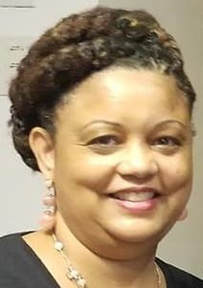African American Women History

Dr. Shanna L. Smith
Title: Assistant Professor of English
Research Topic: “Tell Me Your Diamonds": Story Bearing In African American Women's Life History Narratives
Institution: University of Maryland, College Park
Committee Chair: Dr. Psyche Williams-Forson
Abstract: In 1994, a week prior to the release of her family memoir The Sweeter the Juice, African American writer, Shirley Haizlip was a guest on the Oprah Winfrey Show. The episode, “Denying my Race,” unveiled the ways some members of Haizlip’s bi-racial family sought to pass for white, while others lived successful lives as African Americans. During the publicized reunion, members of both sides of the racial coin worked toward coming to terms with their identities. In telling this story, Haizlip took on the role of the female story bearer, the writer of the family narrative who is positioned two or more generations beyond the story she tells. What does it mean to be a living archive, a black woman who carries the mantle of an uneasy familial past and makes it her body of work? What does it mean to investigate a wound in the family that is representative of larger cultural injuries that occurred during pivotal moments in black history? How can deeply entrenched cultural wounds open dialogue, establish common ground, and create spaces for empathy and understanding across race, gender, sexuality, and class? Each of the women, about whom I am writing in this dissertation, helps to address these questions. A’Lelia Bundles, Shirlee Haizlip, and (Carole) Ione1 have all been afforded the opportunity to labor with their fingers to corroborate the oral narratives handed to them. The fruit of their labor are their life histories: On Her Own Ground, The Sweeter the Juice, and Pride of Family, respectively. The titles signal familial pasts that intersect with the complexities of gender and labor, race and racial passing, class and privilege. Using personal life histories like that of Haizlip, Bundles, Ione and others I seek to better understand the ways in which women writers can foster more generative understandings of African American life histories and the ways in which they are situated as sites for social change.
Title: Assistant Professor of English
Research Topic: “Tell Me Your Diamonds": Story Bearing In African American Women's Life History Narratives
Institution: University of Maryland, College Park
Committee Chair: Dr. Psyche Williams-Forson
Abstract: In 1994, a week prior to the release of her family memoir The Sweeter the Juice, African American writer, Shirley Haizlip was a guest on the Oprah Winfrey Show. The episode, “Denying my Race,” unveiled the ways some members of Haizlip’s bi-racial family sought to pass for white, while others lived successful lives as African Americans. During the publicized reunion, members of both sides of the racial coin worked toward coming to terms with their identities. In telling this story, Haizlip took on the role of the female story bearer, the writer of the family narrative who is positioned two or more generations beyond the story she tells. What does it mean to be a living archive, a black woman who carries the mantle of an uneasy familial past and makes it her body of work? What does it mean to investigate a wound in the family that is representative of larger cultural injuries that occurred during pivotal moments in black history? How can deeply entrenched cultural wounds open dialogue, establish common ground, and create spaces for empathy and understanding across race, gender, sexuality, and class? Each of the women, about whom I am writing in this dissertation, helps to address these questions. A’Lelia Bundles, Shirlee Haizlip, and (Carole) Ione1 have all been afforded the opportunity to labor with their fingers to corroborate the oral narratives handed to them. The fruit of their labor are their life histories: On Her Own Ground, The Sweeter the Juice, and Pride of Family, respectively. The titles signal familial pasts that intersect with the complexities of gender and labor, race and racial passing, class and privilege. Using personal life histories like that of Haizlip, Bundles, Ione and others I seek to better understand the ways in which women writers can foster more generative understandings of African American life histories and the ways in which they are situated as sites for social change.
| smith_umd_0117e_15002.pdf | |
| File Size: | 1011 kb |
| File Type: | |